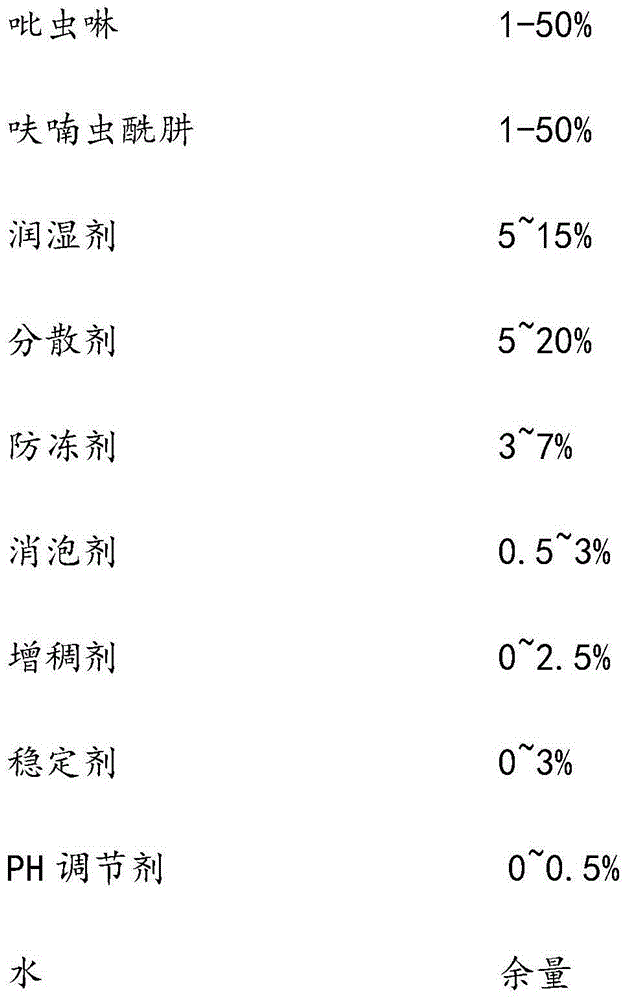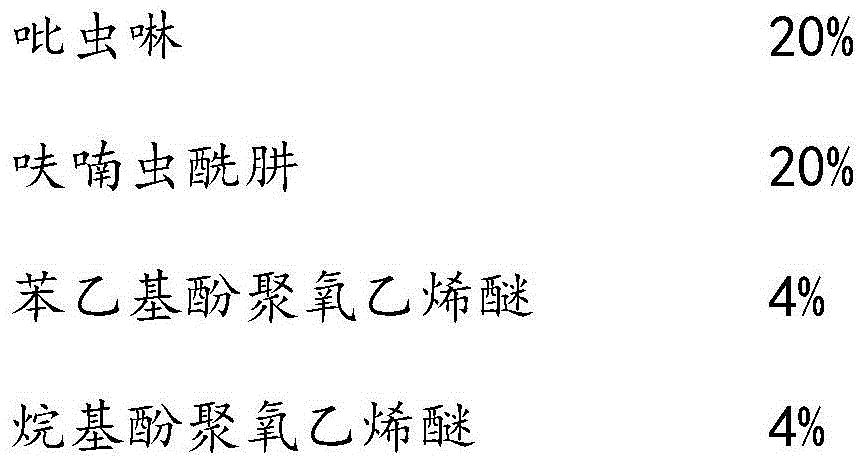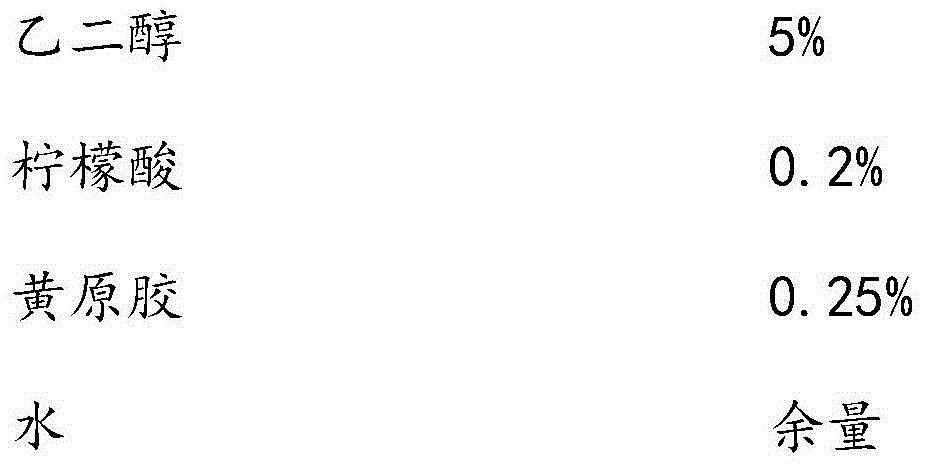Insecticide composition containing imidacloprid and furan tebufenozide as well as preparation method for insecticide composition
A technology for furan hydrazide and an insecticidal composition is applied in the field of insecticidal compositions containing imidacloprid and furan hydrazide and the preparation thereof, and can solve the problems of inability to complete molting, dehydration of larvae, death and the like
- Summary
- Abstract
- Description
- Claims
- Application Information
AI Technical Summary
Problems solved by technology
Method used
Image
Examples
Embodiment 1
[0026] 40% imidacloprid · furantenozide suspension preparation, the distribution ratio of each component is by weight:
[0027]
[0028]
[0029] The preparation process is as follows: high-speed dispersion of imidacloprid and furantenozide, phenethylphenol polyoxyethylene ether, alkylphenol polyoxyethylene ether, and part of water according to the stated ratio for 30 minutes, and the Grind the mixed material until the particle size is less than 5um, put it in the post-mixing tank, add ethylene glycol, citric acid, xanthan gum, etc. and stir evenly to get the finished product.
experiment example 1
[0031] Weigh imidacloprid and furafenozide using the process of Example 1 to prepare imidacloprid·furafenozide suspension concentrate with a total active ingredient weight percentage of 30% in different proportions. See the table below for specific ratios.
[0032] The indoor synergistic bioassay was carried out by the leaf dipping method, and the resistant Plutella xylostella was selected as the target pest. Each treatment was repeated 3 times, and 60 heads were treated at each concentration. Medium concentration, use the LC50 value to calculate the co-toxicity coefficient according to Sun Yunpei's method to evaluate the mixed effect, usually showing three types of effects, namely synergistic, additive and antagonistic, when the co-toxicity coefficient (CTC) is greater than 120, it has a synergistic effect .
[0033] Actual toxicity index ATI(AB)=EC50 of A / EC50 of AB*100
[0034] Theoretical toxicity index TTI(AB)=TI(A)*A percentage in the mixture +TI(B)*B percentage in the...
experiment example 2
[0041] The indoor synergistic bioassay was carried out by the leaf soaking method, and the resistant cotton bollworm was selected as the target pest. Each treatment was repeated 3 times, and 60 heads were treated at each concentration. For medium concentration, use the LC50 value to calculate the co-toxicity coefficient according to Sun Yunpei's method to evaluate the mixed use effect.
[0042] The results are shown in the table below:
[0043] Table 2 Toxicity determination results of imidacloprid and furantenozide compound and single agent against resistant cotton bollworm
[0044]
[0045] It can be seen from Table 2 that the co-toxicity coefficients of imidacloprid and furanfenozide are both greater than 120 within the proportioning range, indicating that both have synergistic effects within this range.
PUM
 Login to View More
Login to View More Abstract
Description
Claims
Application Information
 Login to View More
Login to View More - R&D
- Intellectual Property
- Life Sciences
- Materials
- Tech Scout
- Unparalleled Data Quality
- Higher Quality Content
- 60% Fewer Hallucinations
Browse by: Latest US Patents, China's latest patents, Technical Efficacy Thesaurus, Application Domain, Technology Topic, Popular Technical Reports.
© 2025 PatSnap. All rights reserved.Legal|Privacy policy|Modern Slavery Act Transparency Statement|Sitemap|About US| Contact US: help@patsnap.com



